Today’s readings
Today we celebrate with great joy one of the most wonderful feasts on our Church calendar, the Most Holy Body and Blood of Christ. Through this greatest of all gifts, we have been made one with our God who loves his people beyond all imagining. We experience this love in perhaps one of the most basic ways of our human existence, which is to say by being fed. Learning to satisfy our hunger is one of the first things we learn; we learn who we can depend on and develop close relationships with those people. Today’s feast brings it to a higher level, of course. The hunger we’re talking about is not mere physical hunger, but instead a deep inner yearning, a hunger for wholeness, for relatedness, for intimate union with our God. This is a hunger that we all have, and despite our feeble attempts to do otherwise, it cannot be filled with anything less than God.
What we see in our God is one who has always desired deep union with his people. Salvation began with the creation of the whole world, the saving of Noah and those on the ark, the covenant made with Abraham, the ministry of the prophets, and ultimately culminated in the life, death, and resurrection of Christ, the acceptable sacrifice which brings salvation to the whole world. God never lost interest in his creation; he didn’t set the world in motion and then back off to leave everything to its own devices. God has time and again intervened in human history, offering us an olive branch, seeking renewal of our relationship with him, and bringing us back no matter how far we have fallen.
God has repeatedly sought to covenant with us. Eucharistic Prayer IV beautifully summarizes God’s desire: “You formed man in your own image and entrusted the whole world to his care, so that in serving you alone, the Creator, he might have dominion over all creatures. And when through disobedience he had lost your friendship, you did not abandon him to the domain of death. For you came in mercy to the aid of all, so that those who seek might find you. Time and again you offered them covenants and through the prophets taught them to look forward to salvation.” And unlike human covenants, which have to be ratified by both parties, and are useless unless both parties agree, the covenant offered by God is effective on its face. God initiates the covenant, unilaterally, out of love for us. Our hardness of heart, our sinfulness, our constant turning away from the covenant do not nullify that covenant. God’s grace transcends our weakness, God’s jealous love for us and constant pursuit of us is limitless.
Today’s Liturgy of the Word shows us the history of the covenant. The first reading recalls the covenant God made with the Israelites through the ministry of Moses. The people agree to do everything the Lord commanded, and Moses seals the covenant by sprinkling the people with the blood of the sacrifice and saying, “This is the blood of the covenant that the LORD has made with you in accordance with all these words of his.” The writer of the Letter to the Hebrews makes the point that if the blood of sacrificed animals can bring people back in relationship with God, how much more could the blood of Christ draw back all those who have strayed. Christ is the mediator of the new covenant, as he himself said in the Gospel: “This is my blood of the covenant, which will be shed for many.”
And so we, among the many, benefit from Christ’s blood of the covenant. The preface for the Eucharist Prayer today says, “As we eat his flesh that was sacrificed for us, we are made strong, and, as we drink his Blood that was poured out for us, we are washed clean.” God’s desire for covenant with us cannot be stopped by sin or death or the grave because his grace is mightier than all of that.
We disciples are called then to respond to the covenant. Having been recipients of the great grace of God’s love, we are called to live the covenant in our relationships with others. Which isn’t always the easiest thing to do. Sometimes people test our desire to covenant with them; sometimes they don’t even want to be in covenant with us. But the model for our relationships with others is the relationship God has with us. And so sometimes we have to unilaterally extend the covenant, even if the other isn’t willing, or doesn’t know, that we care for them. God wants to offer the covenant to everyone on earth, and he may well be using us to extend the covenant to those he puts in our path.
We do this in so many ways. Here at Notre Dame, one of the important ways we do that is through our food pantry which serves over 60 families each month. Our Food Pantry has the distinction of bringing the food donations to the families, which is so helpful to those who do not have reliable transportation. Over the past months, our food donations have dwindled, and we were hopeful of a large donation from the food drive by the Clarendon Hills Post Office, but it was not as large as we had hoped. During the summer months, food donations tend to dwindle further, although the need for them does not. One way that we can extend the covenant of grace that we have received is to feed the hungry. I would like to invite all of you to bring a bag of food for the poor next week, even though this is not our regular food pantry collection week. It will go a long way to helping needy families through the summer months.
God’s covenant with us is renewed every day, and celebrated every time we come to receive Holy Communion. When we receive the Most Holy Body and Blood of Christ in the Eucharist, we are renewed in the covenant, strengthened in grace and holiness, and brought nearer to our God who longs for us. We who are so richly graced can do no less than extend the covenant to others, helping them too to know God’s love for them, feeding them physically and spiritually.
The Psalmist asks today, “How shall I make a return to the LORD for all the good he has done for me?” And the answer is given: by taking up the chalice of salvation, drinking of God’s grace, renewing the covenant, and passing it on to others. May the Body and Blood of Christ keep us all safe for eternal life!
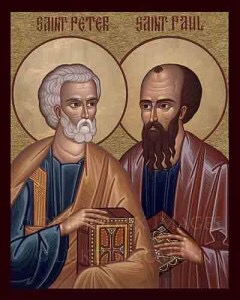


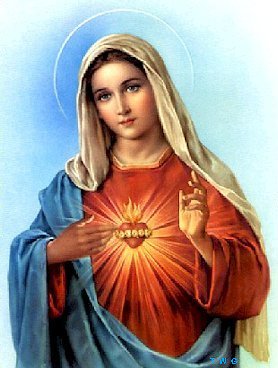
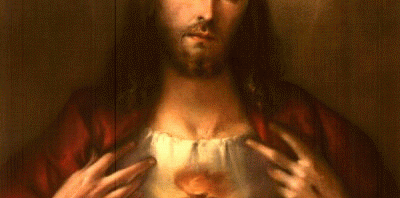
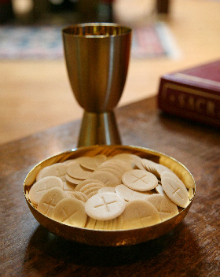
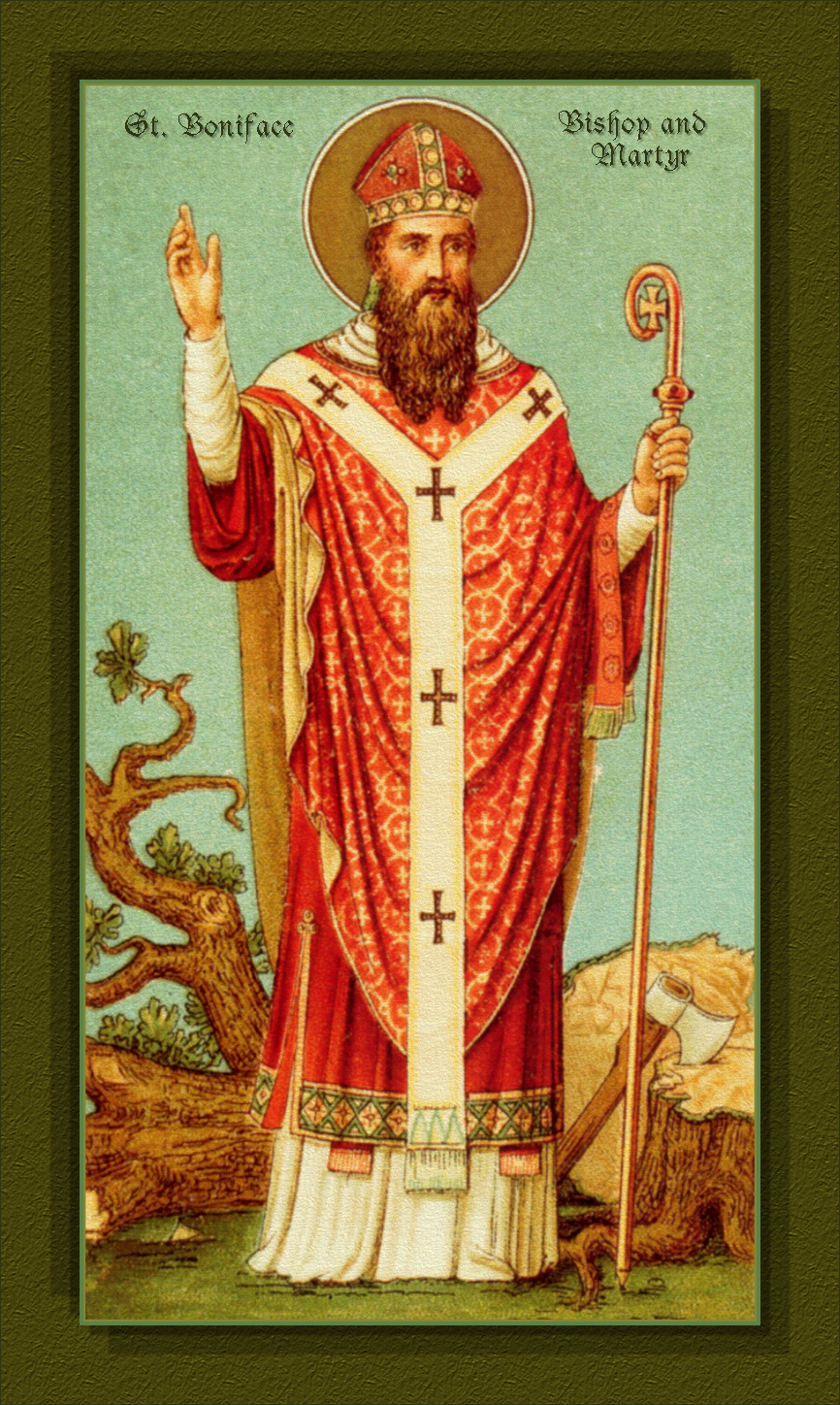
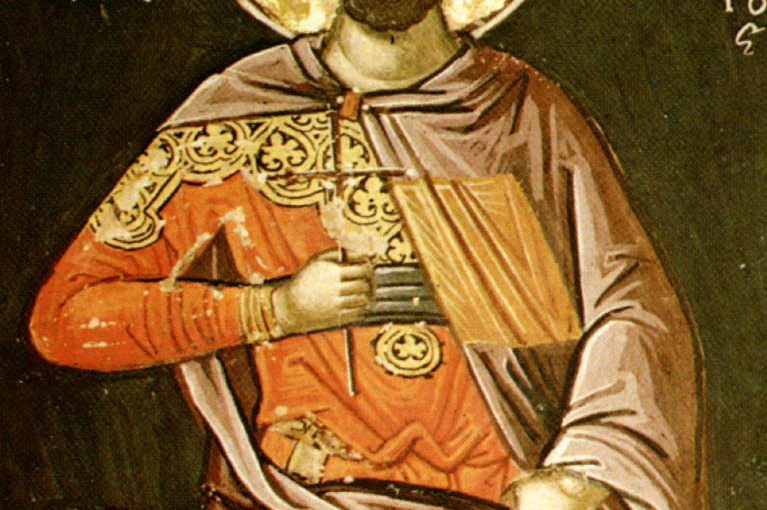
You must be logged in to post a comment.